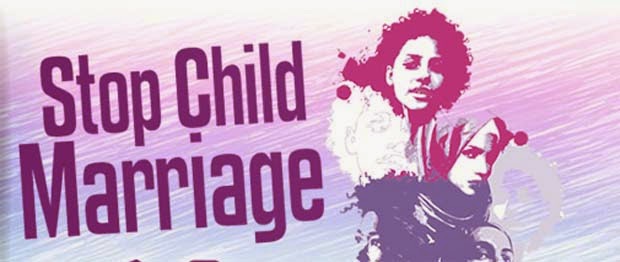Childhood must never be derailed by motherhood
Lazarus Sauti
Tsitsi Munyoro (not her
real name) is an 18 year old girl from Kuwadzana, a high density suburb in
Zimbabwe. She is staying with her mother. Unfortunately, she is not going to
school because she is heavily pregnant.
Like most teenage girls,
she did not plan to get pregnant earlier in her life, but find herself in this predicament
because of peer pressure, among other factors.
Another case is that of
Lindiwe Katongo, a 14 year old girl from Chama Village, Zambia. She was
impregnated by her 17 year old classmate. She is at home whilst her boyfriend
is attending classes.
Likewise, a teenager
girl, Zanele Tshuma, from Mpumalanga Province in South Africa was impregnated
by an older man, three times older than her. Sadly, the culprit coerced the young
girl to mention a school boy as being responsible to avoid a possible jail
term.
These are few cases of
teen pregnancies within and across the SADC region. Sadly, more victims are
girls who are 14 years or younger.
A United Nations report “The State of World Population 2013, produced by
the UN Population Fund noted that out of the 7.3 million births, 2 million are
to girls who are 14 or younger, many of whom suffer grave long-term health and
social consequences from pregnancy such as obstetric fistula.
The report further
states that teen pregnancies can be attributed to many factors: peer pressure, early
initiation to sex among boys and girls in some African countries, lack of entertainment facilities (like community halls
and sporting facilities), influence from foreign cultures and
cultural practice that encourages boys to become fathers.
More so, parents
nowadays have less time for their children as they are supposed to; instead
these children are left in the hands of maids.
Sadly, these maids have
less to teach the children as they themselves have their own issues to deal
with.
According to an article
titled “Lack of Parental Guidance Contributes to Teenage Pregnancy” parents are
to blame also because they sometimes knowingly provide false information about
sex to discourage their children from participating in it.
A lack of access to education is also fuelling teen pregnancies.
“Too often, society blames only the girl for getting pregnant. The reality
is that adolescent pregnancy is most often not the result of a deliberate
choice, but rather the absence of choices, and of circumstances beyond a girl’s
control. It is a consequence of little or no access to school, employment,
quality information and health care,” says UNFPA Executive Director Babatunde
Osotimehin.
In some African
countries, the high rate of teenage pregnancies is being caused by negative
attitudes by personnel at health facilities who turn away young people wanting
to access family planning services.
Something, therefore,
needs to be done urgently to address the problem of teenage pregnancy in countries
within and across Africa because girls are losing out on economic opportunities
due to early pregnancies.
UN News Centre notes: “Early pregnancy takes a toll on a girl’s health,
education and rights. It also prevents her from realising her potential and
adversely impacts the baby.
“A country’s economy is, therefore, affected by teenage pregnancies as
adolescent mothers are prevented from entering the workforce.”
In a foreword, The State of World Population 2013 report concurs: “When
a girl becomes pregnant, her present and future change radically, and rarely
for the better. Her education may end, her job prospects evaporate, and her
vulnerabilities to poverty, exclusion and dependency multiply.”
Since the problem of teen pregnancies is huge in Africa, governments
must increase sensitisation programmes to discourage unprotected sex among
teens.
Thus, providing
education for all is a panacea to the problem. UN Secretary-General Ban Ki-moon concurs: “When a young
girl is educated, she is more likely to marry later, delay childbearing until
she is ready, have healthier children, and earn a higher income.”
Ban also believes that it is critical to provide all adolescents with
age-appropriate, comprehensive education on sexuality, stating that this is
especially important to empower young women to decide when and if they wish to
become mothers.
Relevant authorities must help keep girls safe by enforcing laws that deter
early marriages and harshly punish rape. At the same time, they should also
actively promote access to birth control and reproductive health education.
More so, parental
guidance and supervision is an integral part of keeping teenage girls from
engaging themselves in premarital sex and imparting life skills would empower
young people to become assertive to avoid vices such as sex that distract their
education.
It is critical for African countries to invest more in girls to curb teen
pregnancies.
The State of World Population 2013 report, therefore, notes: “Countries
must not only increase efforts to prevent teenage pregnancies, they must also
invest more in girls as currently the global community directs less than two
cents of every dollar spent on international development to adolescent girls.”
The report concludes, “Countries must adopt a holistic approach which does
not dwell on changing girls’ behaviour, but seeks to change attitudes in
society so girls are encouraged to stay in school, child marriage is banned,
girls have access to sexual and reproductive health including contraception,
and young mothers have better support systems.”

Comments
Post a Comment